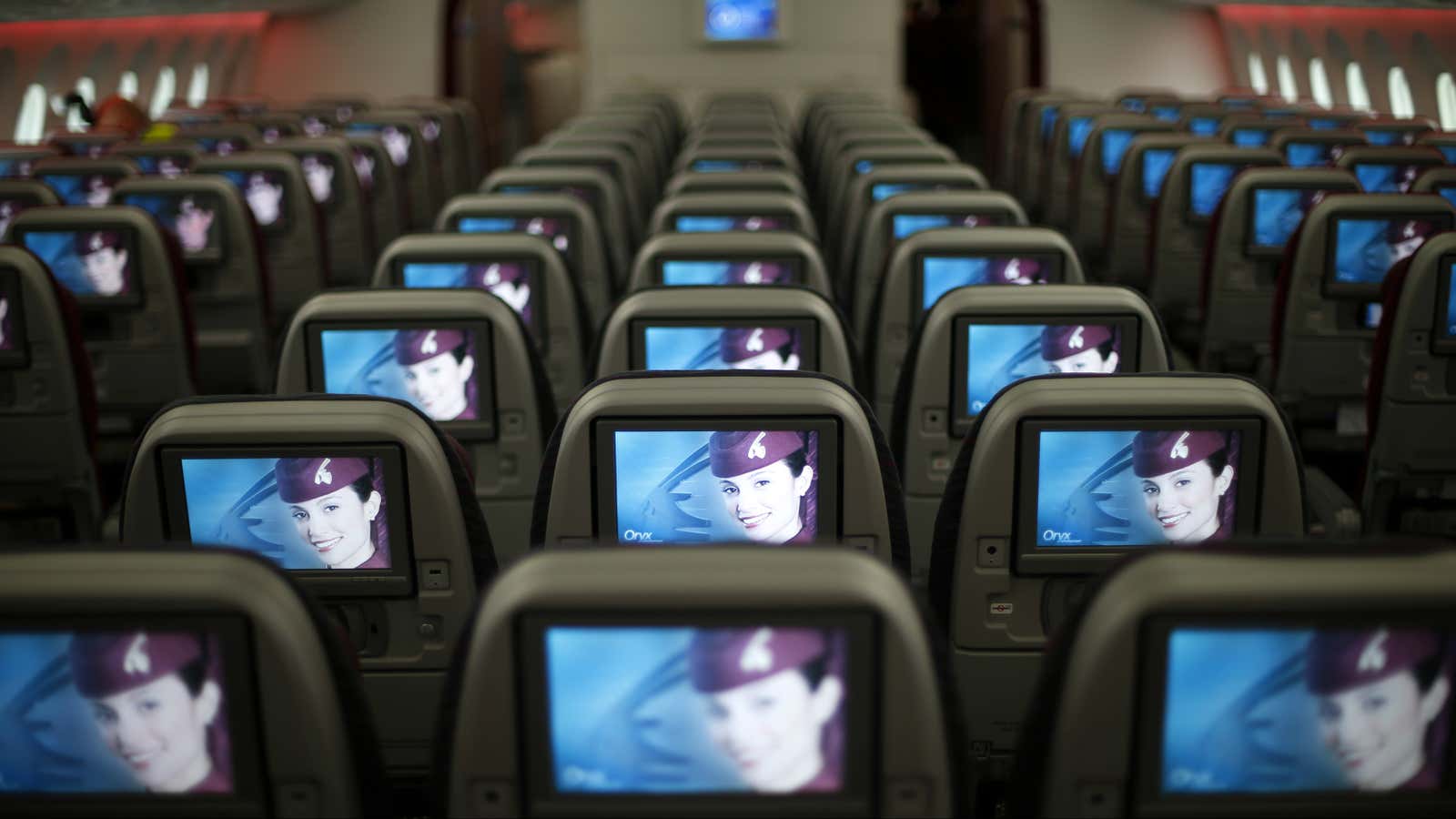The UK is joining the US in barring passengers from bringing laptops and other personal electronics on board flights originating from certain Middle East countries.
Earlier on Tuesday, the US Department of Homeland Security announced a ban on laptops, tablets and cameras in cabins on US-bound flights from 10 Middle East and African airports, citing the threat of terror attacks on commercial air travel.
Passengers on flights to the US from those countries will be required to place these items in their checked baggage.
Senior US officials who briefed reporters on the ban did not specify any specific threat but they pointed to the deadly bombing of a Russian airliner in Egypt in 2015 and an explosion on board a Daallo Airlines plane in Somalia last year, in which an individual detonated a device made with a laptop that made it through security at Mogadishu’s airport. The explosion blew a hole in the side of the plane but did not bring the plane down.
The new UK measure will apply to inbound flights from Turkey, Lebanon, Jordan, Egypt, Tunisia, and Saudi Arabia, according to a statement by UK transportation secretary Chris Grayling. Travelers can still bring these devices with them into the cabin on flights to those destinations on flights originating in the UK.
UK officials “have been in close contact” with US officials “to fully understand their position,” said Grayling, without providing more details on potential threats or how the measures would prevent attacks.
Electronic devices larger than 16 centimeters in length (6.2 inches), 9.3 cm (3.7 in) in width, and 1.5 cm (0.6 in) depth must be checked in luggage, according to the statement.
The list differs from the countries included the United States’ restriction, which extends to US-bound flights from Qatar, the United Arab Emirates, and Kuwait.
The UK’s new policy would affect passengers arriving on a host of airlines, including British Airways. The US restriction affected only carriers of the Middle East and North Africa, no European or US airlines were included since they don’t fly those Middle East-to-US routes.
Both measures are sure to draw ire from business travelers who often don’t stop working on flights.
“Not allowing them to bring their devices on the plane cuts productivity, taking away time that they can be getting business done,” said the Global Business Travel Association. ”Many business travelers also prefer to keep their devices close for security purposes because they may contain sensitive company information.”
For airlines, it could mean the loss of a lucrative passenger, whose spacious seats can fetch more than four times the price of an economy-class ticket. Instead, they could opt to fly through a country that does not have the ban.
“We understand the frustration that these measures may cause and we are working with the aviation industry to minimize any impact,” said Grayling in the statement. “Our top priority will always be to maintain the safety of British nationals.”
